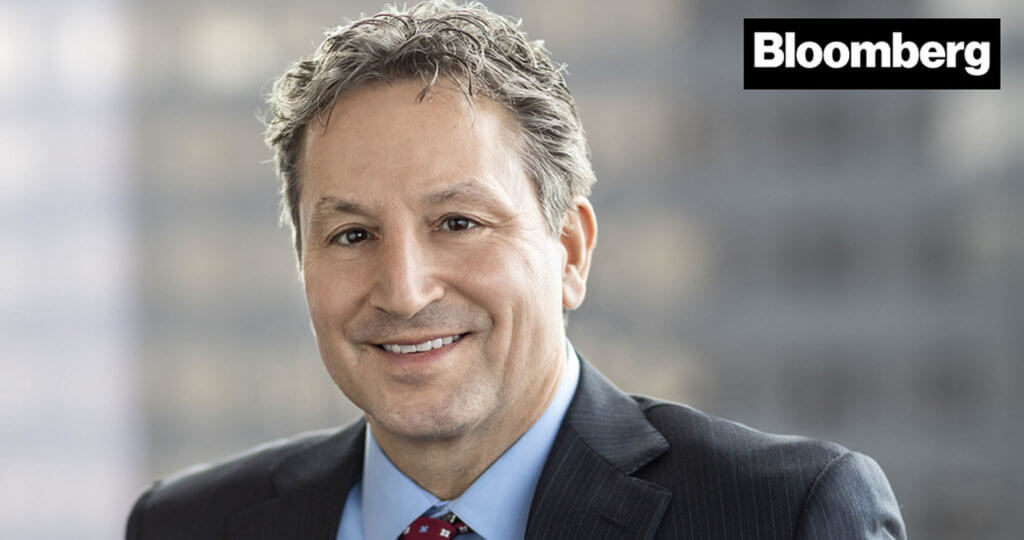Oakmark International Fund – Investor Class
Average Annual Total Returns 06/30/18
Since Inception 09/30/92 9.85%
10-year 8.36%
5-year 6.83%
1-year 3.13%
3-month -5.04%
Gross Expense Ratio as of 09/30/17 was 1.00%
Net Expense Ratio as of 09/30/17 was 0.95%
Past performance is no guarantee of future results. The performance data quoted represents past performance. Current performance may be lower or higher than the performance data quoted. The investment return and principal value vary so that an investor’s shares when redeemed may be worth more or less than the original cost. The To obtain the most recent month-end performance data, view it here.
The Oakmark International Fund declined 5.0% for the quarter ended June 30, 2018, underperforming the MSCI World ex U.S. Index, which declined 0.8% over the same period. However, the Fund has returned an average of 9.9% per year since its inception in September 1992, outperforming the MSCI World ex U.S. Index, which has averaged 6.1% per year over the same period.
Experian, a leading worldwide credit bureau, was the top contributor to performance for the quarter. Investors were pleased with Experian’s full fiscal-year results, as its revenue growth and operating profit margins were in line with market expectations. Fiscal-year organic growth was driven by the North American B2B segment and picked up substantially in the fourth quarter due to structural demand for data and analytics, coupled with new product introductions. Management is expecting continued organic growth in the 6-8% range over the next three years. Experian is gaining market share in the core North American consumer credit market after combining its credit services and decision analytics businesses, thereby providing a greater value-added solution to its clients. Management continues to be mindful of shareholder returns as evidenced by the new share repurchase program of up to $400 million. We believe Experian is an excellent business with good returns and strong free cash flow conversion that trades at a discount to our estimate of intrinsic value.
Daimler, the company best known for its passenger car business under the Mercedes-Benz brand, was the largest detractor for the quarter. During the quarter, Daimler issued a profit warning and indicated that it expects this year’s group EBIT to be slightly below 2017’s level. The company has faced some near-term challenges due to higher raw material costs, adverse effects from currency movements and minor difficulties with U.S. suppliers. Management largely mitigated these issues through cost cutting. However, Daimler now faces a threat of a tariff on vehicles imported from Europe to the U.S. The company also expects that reciprocal tariffs between the U.S. and China will impact its U.S.-built SUVs intended for delivery to China. Daimler’s management is evaluating methods to redirect auto shipments into China from other geographies as a possible work-around strategy to avoid tariffs. There is no certainty that tariffs will be imposed; the matter remains fluid. Emissions concerns have also put pressure on Daimler’s share price. To date, the company has recalled 750,000 vehicles to address emission issues, but has paid no fines. The company continues to insist that it did not illegally use its cars’ software to cheat emissions tests. On a more positive front, Daimler held a capital markets day for the trucks division that highlighted the opportunity for margin expansion and management continues to explore the potential for separation of the group via Project Future. Despite the current geopolitical noise, Daimler still meets our operational performance expectations and is trading at a significant discount to our estimate of intrinsic value.
During the quarter, we added two new names to the portfolio: Alimentation Couche-Tard (Canada), the largest independent operator of fuel and convenience stores in North America; and Reckitt Benckiser (U.K.), a large global consumer products company.
Geographically, we ended the quarter with 81% of our holdings in Europe and the U.K., 4% in Japan and 2% in Australia. The remaining positions are in South Africa, the U.S., India, Indonesia, Taiwan, Mexico, Canada, China and South Korea.
We continue to believe the Swiss franc is overvalued versus the U.S. dollar. As a result, we defensively hedged a portion of the Fund’s exposure. Approximately 20% of the Swiss franc exposure was hedged at quarter end.
Thank you for your support!
The securities mentioned above comprise the following percentages of the Oakmark International Fund’s total net assets as of 06/30/18: Experian PLC 0.9%, Daimler AG 4.5%, Alimentation Couche-Tard Inc, Class B 0.3% and Reckitt Benckiser Group Plc 0.5%. Portfolio holdings are subject to change without notice and are not intended as recommendations of individual stocks.
The net expense ratio reflects a contractual advisory fee waiver agreement through January 28, 2019.
The MSCI World ex U.S. Index (Net) is a free float-adjusted, market capitalization-weighted index that is designed to measure international developed market equity performance, excluding the U.S. The index covers approximately 85% of the free float-adjusted market capitalization in each country. This benchmark calculates reinvested dividends net of withholding taxes. This index is unmanaged and investors cannot invest directly in this index.
The Fund’s portfolio tends to be invested in a relatively small number of stocks. As a result, the appreciation or depreciation of any one security held by the Fund will have a greater impact on the Fund’s net asset value than it would if the Fund invested in a larger number of securities. Although that strategy has the potential to generate attractive returns over time, it also increases the Fund’s volatility.
The percentages of hedge exposure for each foreign currency are calculated by dividing the market value of all same-currency forward contracts by the market value of the underlying equity exposure to that currency.
Investing in foreign securities presents risks that in some ways may be greater than U.S. investments. Those risks include: currency fluctuation; different regulation, accounting standards, trading practices and levels of available information; generally higher transaction costs; and political risks.
The discussion of the Fund’s investments and investment strategy (including current investment themes, the portfolio managers’ research and investment process, and portfolio characteristics) represents the Fund’s investments and the views of the portfolio managers and Harris Associates L.P., the Fund’s investment adviser, at the time of this letter, and are subject to change without notice.
All information provided is as of 06/30/2018 unless otherwise specified.








